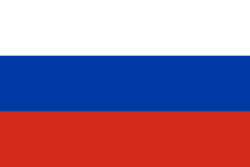18 - 22 SEPTEMBER, 2023, Moscow
International
Scientific and Practical Symposium
The Future of the Construction industry: Challenges and Development Prospects
Scientific and Practical Symposium
The Future of the Construction industry: Challenges and Development Prospects

When
18 - 22 SEPTEMBER 2023
18 - 22 SEPTEMBER 2023

Where
Moscow State University of Civil Engineering. Moscow, Russia
Moscow State University of Civil Engineering. Moscow, Russia
Important Dates
31/08/2023
Deadline for paper submission
15/09/2023
Program publication
18-22/09/2023
Symposium
- 1000+Participants
- 15Key speakers
- 30+Scientific sessions
ABOUT THE CONFERENCE
The main aim of the Conference is to provide the sustainable innovative development of the construction industry, to preserve the continuity of scientific schools, to form a new level of training professional staff, to strengthen scientific and business contacts.
The language of the Conference is English and Russian.
Participation format:
Participants can to make their report in two formats: an oral presentation on the days of the conference (including online presentation) or recording a video presentation.
The main aim of the Conference is to provide the sustainable innovative development of the construction industry, to preserve the continuity of scientific schools, to form a new level of training professional staff, to strengthen scientific and business contacts.
The language of the Conference is English and Russian.
Participation format:
Participants can to make their report in two formats: an oral presentation on the days of the conference (including online presentation) or recording a video presentation.
CONFERENCE ORGANIZER
Moscow State University of Civil Engineering
Address
Yaroslavskoye Shosse, 26, Moscow, Russia
Publication
Selective accepted papers of conference will be published in journal indexed by: Scopus.
Moscow State University of Civil Engineering
Address
Yaroslavskoye Shosse, 26, Moscow, Russia
Publication
Selective accepted papers of conference will be published in journal indexed by: Scopus.
Scientific committee
CHAIRPERSON
- PROF. PAVEL AKIMOVDSc, Professor, Academician of RAACS, Rector of Moscow State University of Civil Engineering
INTERNATIONAL SCIENTIFIC COMMITTEE
- DR. VLADIMIR ALEKHINPhD, Associate professor, Head of department, Ural Federal University
- DR. MOHAMMAD ARIF KAMALPhD, Associate Professor, Aligarh Muslim University, India
- PROF. ALEXANDER BELOSTOTSKIDSc, Professor, Academician of RAACS, professor of the Department of Informatics and Applied Mathematics, Moscow State University of Civil Engineering
- DR. ADIMOOLAM BOOMINATHANPhD, Professor, Indian Institute of Technology Madras, Chennai, India
- PROF. NGUYEN
VIET ANHDirector of Institute of Environmental Science and Engineering (IESE), Hanoi University of Civil Engineering, Vietnam - DR. ANKIT
GARGPhD, Professor, Shantou University, Shantou, China - DR. ANDREY DANILENKOPhD, Associate professor, Vice-Rector, Novosibirsk State University of Architecture And Civil Engineering (Sibstrin)
- PROF. NINA DANILINADSc, Professor, Corresponding Member of RAACS, Head of Department of Urban Planning, Moscow State University of Civil Engineering
- DR. FARDIN JAFARZDEHPhD, Professor, President of the Iran Geotechnical Association, Sharif University of Technology, Tehran, Iran
- DR. SERGEY EFIMENKODSc, Vice-Rector, Associate professor, Tomsk State University of Architecture and Building
- PROF. ASKAR ZHUSSUPBEKOVDSc, Professor, Research Professor, Director of the Geotechnical Institute,
President of the Kazakhstan Geotechnical Association, Eurasian National University named after L.N. Gumilev Astana, Kazakhstan - PROF. ARMEN KAZARYANDSc, Academician of RAACS, Director of Institute of Architecture and Urban Planning, Moscow State University of Civil Engineering
- DR. VICTOR KALIAKINPhD, Professor Department of Civil Engineering, University of Delaware, Newark, United States
- DR. MAHDI
KARKUSHPhD, Professor, President of the Iraq Geotechnical Association, University of Baghdad, Baghdad, Iraq - PROF. NIKOLAI KARPENKODSc, Professor, Head of the Laboratory "Problems of Strength and Quality in Construction" of the Research Institute of Building Physics of the Russian Academy of Architecture and Building Sciences, Academician of RAACS
- DR. SERGEY KOVSHARPhD, Associate professor, Dean of the Faculty of Civil Engineering, Belarusian National Technical University, Belarus
- PROF. DMITRY KOZLOVDSc, Professor, Head of the Department of Hydraulics and Hydrotechnical Construction of Moscow State University of Civil Engineering
- PROF. VITALY KOLCHUNOVDSc, Professor, Academician of RAACS, Head of Department of unique buildings and structures, The Southwest State University
- PROF. SERGEY KUZNETSOVDSc, Professor, Leading Scientist of Department Wave Dynamics, Institute for Problems in Mechanics
- PROF. VALENTINA LOGANINADSc, Professor, Head of the Department "Quality Management and Technologies of Construction Production", Penza State University of Architecture and Construction
- PROF. LEONID LYAKHOVICHDSc, Professor, Academician of RAACS, professor of the Department of Structural Mechanics, Tomsk State University of Architecture and Civil Engineering
- PROF. RASHID MANGUSHEVDSc, Professor, Department of Geotechnics, Saint Petersburg State University of Architecture and Civil Engineering
- PROF. MIRZIOYD MIRSAIDOVDSc, Professor, Academician of the Academy of Sciences of the Republic of Uzbekistan, Head of Department of Theoretical and Construction Mechanics, Tashkent Institute of Irrigation and Agricultural Mechanization Engineers, Republic of Uzbekistan
- PROF. ILIZAR MIRSAYAPOVDSc, Professor, Head of department foundations, structural dynamics and engineering geology, Kazan State University of Architecture and Engineering
- DR. DMITRY
MONICHDSc, Vice-Rector, Associate professor, Nizhny Novgorod State University of Architecture and Civil Engineering - DR. NGUYEN
NGOC THANGPhD, Associate professor, Dean of faculty of Civil engineering,Thuyloi University, Vietnam - DR. ABDULLA OMAROVPhD, Associate professor, Department of Civil Engineering, L.N. Gumilyov Eurasian National University, Astana, Kazakhstan
- PROF. YURI PANIBRATOVDSc, Professor, Honored scientist of the Russian Federation, Academician of RAACS
- PROF. VLADILEN PETROVDSc, Professor, Academician of RAACS, professor of the Department of Building Materials, Structures and Technologies, Gagarin State Technical University Yu.A.
- PROF. YURI PUKHARENKODSc, Professor, Head of department "Technology of building materials and metrology", Saint Petersburg State University of Architecture and Civil Engineering
- PROF. ALEXANDER PUSHKAREVDSc, Professor, Automobile and road faculty, Department of ground transport and technological machines, Saint Petersburg State University of Architecture and Civil Engineering
- PROF. VLADIMIR SIDOROVDSc, Professor, Head of the Department of Informatics and Applied Mathematics of Moscow State University of Civil Engineering, Corresponding Member of RAACS
- DR. ANDREY STOLBOUSKINDSc, Associate professor, Professor of Department of Engineering Structures, Building Technologies and Materials, Siberian State Industrial University
- PROF. ASHOT TAMRAZYANDSc, Professor, Corresponding Member of RAACS, Academician of the Russian Engineering Academy, Head of Department of Reinforced Concrete and Stone Structures, Moscow State University of Civil Engineering
- PROF. VALERIY TELICHENKODSc, Professor, Academician of RAACS, Honorary President of Moscow State University of Civil Engineering, First Vice President of RAACS
- DR. ARMEN
TER-MARTIROSYANDSc, Vice-Rector, Moscow State University of Civil Engineering - PROF. VLADIMIR TRAVUSHDSc, Professor, Vice-President of RAACS, Chief Designer, Deputy General Director of JSC "City Design Institute of Residential and Public Buildings", Academician of RAACS
- PROF. ALEXANDER TUSNINDSc, Professor, Director of Institute Industrial and Civil Engineering, Head of the Department of Metal and Wooden Structures of Moscow State University of Civil Engineering
- DR. TRAN
THANH SONPhD, Dean of faculty of Urban infrastructure and environmental engineering, head of department water and wastewater engineering, Hanoi Architecture University, Vietnam - DR. DER-WEN
CHANGPhD, Professor, Tamkang University, New Taipei City, Taiwan - DR. ALBERTO
CELANIPhD, Research fellow, Department of architecture, built environment and construction engineering, Politecnico di Milano, Italy - PROF. DMITRY SHVIDKOVSKIDSc, Professor, President of the RAACS, Rector of the Moscow Institute of Architecture (State Academy), Academician of RAACS, Academician of the Russian Academy of Arts
- DR. DONG
SHENG XUPhD, Professor, Vice-Dean of School of Civil Engineering and Architecture, Wuhan University of Technology, China - DR. EUN-CHUL
SHINPhD, Professor, Incheon National University, Incheon, South Korea - PROF. MARINA SHITIKOVADSc, Professor, Professor of the Department of Structural and Theoretical Mechanics of Moscow State University of Civil Engineering
KEY SPEAKERS
- Stanislav
AidarovPhD, Department of Civil and Environmental Engineering, Universitat Politecnica de Cataluya, Barcelona, Spain - Alexander
BelostotskiDSc, Professor, Academician of RAACS, professor of the Department of Informatics and Applied Mathematics, Moscow State University of Civil Engineering - Mikhail
ViktorovDoctor of Economics, President of the Association "National Association of Organizations in the Field of Information Modeling Technologies", Honorary Builder of Russia, professor of the Department of Economics and Management in Construction - Mahmood
GolabchiProfessor of Civil Engineering and Architectural Technology, University of Tehran, Iran - Oleg
KabantsevDSc, Associate Professor, Director of Scientific and Technical Projects, Moscow State University of Civil Engineering - Semyon
KaprielovDSc, Head of Laboratory of Chemical Additives and Modified Concrete, NIIZhB A.A. Gvozdeva, Honorary Builder of Moscow - Leonid
LyakhovichDSc, Professor, Academician of RAACS, professor of the Department of Structural Mechanics, Tomsk State University of Architecture and Civil Engineering - Harun
TanrıvermisChair of Department of Real Estate Development and Management, Ankara University (National Research University), Türkiye - Vladimir
TravushDSc, Professor, Vice-President of RAACS, Chief Designer, Deputy General Director of JSC "City Design Institute of Residential and Public Buildings", Academician of RAACS - Wen
ZhaoPhD, Professor, Vice Dean of College of Resources and Civil Engineering, Northeastern University, China - Dmitry
ShvidkovskiDSc, Professor, President of the RAACS, Rector of the Moscow Institute of Architecture (State Academy), Academician of RAACS, Academician of the Russian Academy of Arts - Han
YunsongPhD, Professor, Deputy Director, Harbin Institute of Technology, China
Schedule
18/09/2023
09:00 - 11:00 REGISTRATION (Foyer of the assembly hall)
10:00 - 15:30 Strategic session "Digitalization of "World-Class Campuses" - from idea to implementation" (Academic Council Hall)
16:00 - 18:00 Round table "Creation and development of an innovative educational environment (campuses) as part of the implementation of integrated development of territories" (Academic Council Hall)
11:00 - 17:00 Open dialogue with youth (Coworking)
11:00 - 13:00 Visit to the scientific and technical complex of the National Research University MGSU in Mytishchi (for those interested)
12:00 - 15:30 Friendly volleyball match "MGSU" - "Izyskatel" (NOPRIZ) (Athletics Arena)
All days
Exhibition "Modern trends in architecture in diploma design" (ULK)
10:00 - 15:30 Strategic session "Digitalization of "World-Class Campuses" - from idea to implementation" (Academic Council Hall)
16:00 - 18:00 Round table "Creation and development of an innovative educational environment (campuses) as part of the implementation of integrated development of territories" (Academic Council Hall)
11:00 - 17:00 Open dialogue with youth (Coworking)
11:00 - 13:00 Visit to the scientific and technical complex of the National Research University MGSU in Mytishchi (for those interested)
12:00 - 15:30 Friendly volleyball match "MGSU" - "Izyskatel" (NOPRIZ) (Athletics Arena)
All days
Exhibition "Modern trends in architecture in diploma design" (ULK)
19/09/2023
09:00 - 10:00 REGISTRATION (Foyer of the assembly hall)
10:00 - 13:00 KEY SCIENTIFIC REPORTS (Academic Council Hall)
Online connect
Broadcast
13:00 - 14:00 LUNCH
14:00 - 15:30 Round table "Organizational and technological solutions in surveys, design and construction" (Academic Council Hall)
14:00 - 15:30 Competition for the medal named after N.V. Nikitin Russian Academy of Architecture and Construction Sciences (NTB, studio 9)
14:00 - 15:30 Workshop 5. Architecture. Development ways. - "Architectural trends of the XXI century" (NTB, studio 10)
14:00 - 15:30 Round table "Development of a parametric standardization system in construction" (Coworking)
14:00 - 15:30 Seminar "Fundamental and applied aspects of modern urban planning" (NTB, 59)
14:00 - 15:30 Round table "Social and humanitarian aspects of the construction industry" (NTB, 47)
15:30 - 16:00 Study tours of the scientific and technical complex of the National Research University MGSU
15:30 - 16:00 Coffee break
16:00 - 18:00 Seminar "Reliability and safety of buildings and structures under seismic and emergency impacts" (Academic Council Hall)
16:00 - 19:00 Workshop 1. Construction materials. (NTB, studio 9)
16:00 - 18:00 Workshop 5. Architecture. Development ways. - Conference "Issues of the General History of Architecture" (NTB, studio 10)
16:00 - 18:00 Round table "Sustainable life cycle of buildings and engineering and environmental infrastructure. Comfortable urban environment" (KMK 211.5)
16:00 - 18:00 Seminar "Fundamental and applied aspects of modern urban planning"
(NTB, 59)
16:00 - 18:00 Round table "Social and humanitarian aspects of the construction industry" (NTB, 47)
18:00 - 20:00 Concert of a student cover band (Park Square of the National Research University MGSU)
10:00 - 13:00 KEY SCIENTIFIC REPORTS (Academic Council Hall)
Online connect
Broadcast
13:00 - 14:00 LUNCH
14:00 - 15:30 Round table "Organizational and technological solutions in surveys, design and construction" (Academic Council Hall)
14:00 - 15:30 Competition for the medal named after N.V. Nikitin Russian Academy of Architecture and Construction Sciences (NTB, studio 9)
14:00 - 15:30 Workshop 5. Architecture. Development ways. - "Architectural trends of the XXI century" (NTB, studio 10)
14:00 - 15:30 Round table "Development of a parametric standardization system in construction" (Coworking)
14:00 - 15:30 Seminar "Fundamental and applied aspects of modern urban planning" (NTB, 59)
14:00 - 15:30 Round table "Social and humanitarian aspects of the construction industry" (NTB, 47)
15:30 - 16:00 Study tours of the scientific and technical complex of the National Research University MGSU
15:30 - 16:00 Coffee break
16:00 - 18:00 Seminar "Reliability and safety of buildings and structures under seismic and emergency impacts" (Academic Council Hall)
16:00 - 19:00 Workshop 1. Construction materials. (NTB, studio 9)
16:00 - 18:00 Workshop 5. Architecture. Development ways. - Conference "Issues of the General History of Architecture" (NTB, studio 10)
16:00 - 18:00 Round table "Sustainable life cycle of buildings and engineering and environmental infrastructure. Comfortable urban environment" (KMK 211.5)
16:00 - 18:00 Seminar "Fundamental and applied aspects of modern urban planning"
(NTB, 59)
16:00 - 18:00 Round table "Social and humanitarian aspects of the construction industry" (NTB, 47)
18:00 - 20:00 Concert of a student cover band (Park Square of the National Research University MGSU)
20/09/2023
09:00 - 10:00 REGISTRATION (1st hall of KMK)
10:00 - 12:00 KEY SCIENTIFIC REPORTS (Assembly Hall)
11:00 - 11:45 Meeting of the Board of Trustees of the National Research University MGSU (Academic Council Hall)
12:00 - 13:00 PLENARY SESSION (Assembly Hall)
13:00 - 14:00 LUNCH
14:00 - 15:30 Meeting of the Council of the Industry Consortium "Construction and Architecture" (Academic Council Hall)
14:00 - 15:30 Workshop 3. Conference "Calculation and design of metal and wooden structures" (KMK 211.5)
14:00 - 15:30 Meeting of the Scientific Council of the Russian Academy of Architecture and Construction Sciences (RAACS) "Digital technologies in construction and architecture" (NTB, studio 10)
14:00 - 15:30 Seminar "Economics and management in the field of construction and real estate" (NTB, 59)
14:00 - 15:00 Round table "Development of technical regulation in construction"
(Coworking)
14:00 - 20:00 Workshop 5. Architecture. Development ways. - Conference "Issues of the General History of Architecture" (ULK 102)
15:30 - 20:00 Workshop 3. Conference "Problems of ensuring the safety of reinforced concrete structures, buildings and structures in the face of modern challenges" (Academic Council Hall)
15:30 - 16:00 Study tours of the scientific and technical complex of the National Research University MGSU (for those interested)
15:30 - 16:00 Coffee break
16:00 - 18:00 Workshop 3. Conference "Calculation and design of metal and wooden structures" (KMK 211.5)
16:00 - 18:00 Seminar "Scientific and technical support of unique construction projects" (NTB, studio 10)
16:00 - 18:00 Conference "Economics and management in the field of construction and real estate" (NTB, 59)
16:00 - 18:00 Round table "Innovative methods of research and design of enclosing structures" (NTB, 47)
18:00 - 20:00 SPORTS PROGRAM (Athletics Arena)
10:00 - 12:00 KEY SCIENTIFIC REPORTS (Assembly Hall)
11:00 - 11:45 Meeting of the Board of Trustees of the National Research University MGSU (Academic Council Hall)
12:00 - 13:00 PLENARY SESSION (Assembly Hall)
13:00 - 14:00 LUNCH
14:00 - 15:30 Meeting of the Council of the Industry Consortium "Construction and Architecture" (Academic Council Hall)
14:00 - 15:30 Workshop 3. Conference "Calculation and design of metal and wooden structures" (KMK 211.5)
14:00 - 15:30 Meeting of the Scientific Council of the Russian Academy of Architecture and Construction Sciences (RAACS) "Digital technologies in construction and architecture" (NTB, studio 10)
14:00 - 15:30 Seminar "Economics and management in the field of construction and real estate" (NTB, 59)
14:00 - 15:00 Round table "Development of technical regulation in construction"
(Coworking)
14:00 - 20:00 Workshop 5. Architecture. Development ways. - Conference "Issues of the General History of Architecture" (ULK 102)
15:30 - 20:00 Workshop 3. Conference "Problems of ensuring the safety of reinforced concrete structures, buildings and structures in the face of modern challenges" (Academic Council Hall)
15:30 - 16:00 Study tours of the scientific and technical complex of the National Research University MGSU (for those interested)
15:30 - 16:00 Coffee break
16:00 - 18:00 Workshop 3. Conference "Calculation and design of metal and wooden structures" (KMK 211.5)
16:00 - 18:00 Seminar "Scientific and technical support of unique construction projects" (NTB, studio 10)
16:00 - 18:00 Conference "Economics and management in the field of construction and real estate" (NTB, 59)
16:00 - 18:00 Round table "Innovative methods of research and design of enclosing structures" (NTB, 47)
18:00 - 20:00 SPORTS PROGRAM (Athletics Arena)
21/09/2023
09:00 - 10:00 REGISTRATION (Foyer of the assembly hall)
09:30 - 12:00 Round table "Academic mobility of scientific and pedagogical personnel as a format for quality construction education" (NTB, studio 10)
10:00 - 12:00 Seminar "Predictive analytics and digitalization of construction" (NTB, studio 9)
10:00 - 12:00 Workshop 2. Integrated safety in construction (NTB, 59)
10:00 - 12:00 Seminar "Physics of the Environment" (NTB, 47)
10:00 - 12:00 Workshop 4. Plenary reports of the conference "Problems and methods of computer modeling of structures and structures" ("Zolotov Readings") (Academic Council Hall)
10:00 - 13:00 Strategic session "Design in engineering education" (part 1) (Coworking)
12:00 - 13:00 LUNCH
13:00 - 15:30 Workshop 4. Plenary reports of the conference "Problems and methods of computer modeling of structures and structures" ("Zolotov Readings") (Academic Council Hall)
13:00 - 15:30 Master class: Analysis of urban data using QGIS (NTB, studio 10)
13:00 - 15:30 Seminar "Road construction and infrastructure" (NTB, studio 9)
13:00 - 15:30 Round table "Current problems and priority areas for the development of water supply and sanitation systems" (Coworking)
13:00 - 15:30 Workshop 2. Integrated safety in construction (NTB, 59)
13:00 - 15:30 Round table "Digital methods for managing the life cycle of capital construction projects" (NTB, 47)
13:45 - 18:00 Strategic session "Design in engineering education" (part 2) (Professor's club)
15:30 - 16:00 Study tours of the scientific and technical complex of the National Research University MGSU
15:30 - 16:00 Coffee break
16:00 - 18:00 Workshop 4. Conference "Tasks and methods of computer modeling of structures and structures" ("Zolotov Readings") (Academic Council Hall)
16:00 - 18:00 Master class: Visualization of city data - creation of interactive maps on the FlexGIS platform (NTB, studio 10)
16:00 - 18:00 Seminar "Digital technologies and modeling in construction" (NTB, studio 9)
16:00 - 18:00 Premiere screening of the film "Calling", dedicated to the year of the teacher and mentor (Assembly Hall)
16:00 - 18:00 Round table "Biosphere and the city" (NTB, 59)
16:00 - 18:00 Round table "Digital methods for managing the life cycle of capital construction projects" (NTB, 47)
18:00 - 21:00 CULTURAL PROGRAM (for those interested)
09:30 - 12:00 Round table "Academic mobility of scientific and pedagogical personnel as a format for quality construction education" (NTB, studio 10)
10:00 - 12:00 Seminar "Predictive analytics and digitalization of construction" (NTB, studio 9)
10:00 - 12:00 Workshop 2. Integrated safety in construction (NTB, 59)
10:00 - 12:00 Seminar "Physics of the Environment" (NTB, 47)
10:00 - 12:00 Workshop 4. Plenary reports of the conference "Problems and methods of computer modeling of structures and structures" ("Zolotov Readings") (Academic Council Hall)
10:00 - 13:00 Strategic session "Design in engineering education" (part 1) (Coworking)
12:00 - 13:00 LUNCH
13:00 - 15:30 Workshop 4. Plenary reports of the conference "Problems and methods of computer modeling of structures and structures" ("Zolotov Readings") (Academic Council Hall)
13:00 - 15:30 Master class: Analysis of urban data using QGIS (NTB, studio 10)
13:00 - 15:30 Seminar "Road construction and infrastructure" (NTB, studio 9)
13:00 - 15:30 Round table "Current problems and priority areas for the development of water supply and sanitation systems" (Coworking)
13:00 - 15:30 Workshop 2. Integrated safety in construction (NTB, 59)
13:00 - 15:30 Round table "Digital methods for managing the life cycle of capital construction projects" (NTB, 47)
13:45 - 18:00 Strategic session "Design in engineering education" (part 2) (Professor's club)
15:30 - 16:00 Study tours of the scientific and technical complex of the National Research University MGSU
15:30 - 16:00 Coffee break
16:00 - 18:00 Workshop 4. Conference "Tasks and methods of computer modeling of structures and structures" ("Zolotov Readings") (Academic Council Hall)
16:00 - 18:00 Master class: Visualization of city data - creation of interactive maps on the FlexGIS platform (NTB, studio 10)
16:00 - 18:00 Seminar "Digital technologies and modeling in construction" (NTB, studio 9)
16:00 - 18:00 Premiere screening of the film "Calling", dedicated to the year of the teacher and mentor (Assembly Hall)
16:00 - 18:00 Round table "Biosphere and the city" (NTB, 59)
16:00 - 18:00 Round table "Digital methods for managing the life cycle of capital construction projects" (NTB, 47)
18:00 - 21:00 CULTURAL PROGRAM (for those interested)
22/09/2023
09:30 - 11:00 SUMMARY (Academic Council Hall)
11:00 - 18:00 Technical tours of Moscow construction sites (for those interested)
11:00 - 18:00 Workshop 4. Conference "Tasks and methods of computer modeling of structures and structures" - "Zolotov Readings" (Academic Council Hall, KMK 211.2)
10:00 - 15:00 Strategic session "Design in engineering education" (Coworking)
11:00 - 14:00 Round table "The future of cities in projects for children and youth" (Professor's Club)
14:00 - 19:00 Youth forum "The future of cities in projects for children and youth" (Athletics Arena)
11:00 - 18:00 Technical tours of Moscow construction sites (for those interested)
11:00 - 18:00 Workshop 4. Conference "Tasks and methods of computer modeling of structures and structures" - "Zolotov Readings" (Academic Council Hall, KMK 211.2)
10:00 - 15:00 Strategic session "Design in engineering education" (Coworking)
11:00 - 14:00 Round table "The future of cities in projects for children and youth" (Professor's Club)
14:00 - 19:00 Youth forum "The future of cities in projects for children and youth" (Athletics Arena)
WORKSHOPS
1. MODERN BUILDING MATERIALS
- Theoretical basis of building materials science;
- Nanotechnology in the production of building materials;
- Modern high-performance concretes;
- Construction of modern multifunctional composites;
- Materials for road construction;
- Technologies of utilization and use in the production of building materials of industrial waste;
- Methods of testing, quality control of building materials and products;
- Technology of finishing and insulation materials and products;
- Estimation and increase of durability of building materials and products.
2. Integrated safety in construction
- Bases, foundations, underground structures;
- Geotechnics;
- Soil sciences;
- Hydrology;
- Built environment quality;
- Energy efficiency in construction;
- Sustainable building technologies;
- Natural resources management;
- Environmental health;
- Ecology, hydropower engineering and modeling of physical processes;
- Hydraulics structures, hydraulic engineering and land reclamation construction;
- Renewable energy sources;
- Ecological safety in construction.
3. RELIABILITY OF BUILDINGS AND CONSTRUCTIONS
- The theory of calculation of structures;
- High-rise and large-span buildings and structures;
- Modern principles of calculation and design of structures of buildings and structures (including special purpose);
- Tests, diagnostics, monitoring of the reliability of facilities;
- Fire safety of buildings and structures;
- Safety of buildings in special conditions of external influences, with combined special effects.
4. MODELLING AND MECHANICS OF BUILDING STRUCTURES
- Mathematical models of mechanics of a deformable solids mechanics and its application;
- The theory of elastic and plasticity;
- Fracture mechanics;
- Modelling and simulation of structures.
5. Architecture. Development paths.
1. Architectural trends of the XXI century.
2. Issues of the General History of Architecture.
2. Issues of the General History of Architecture.
PUBLICATION FEES
25000 RUB
Includes:
Presentation of scientific research results;
admission to all conference sessions, workshops, round tables and masterclasses;
online access to Proceedings.
25000 RUB
Includes:
Presentation of scientific research results;
admission to all conference sessions, workshops, round tables and masterclasses;
online access to Proceedings.
Selective accepted submission will be published in journal indexed by: Scopus.
One person can be an author or a co-author in maximum two papers.
The number of pages for each paper - not less than 8, no more than 10.
The maximum amount of co-authors in one article - no more than 5.
TEMPLATES AND GUIDELINES
MS_Word_template
One person can be an author or a co-author in maximum two papers.
The number of pages for each paper - not less than 8, no more than 10.
The maximum amount of co-authors in one article - no more than 5.
TEMPLATES AND GUIDELINES
MS_Word_template
Please read first the detailed Publication ETHICS.
Please use the IMRAD model for structuring your work.
The following parts of the article are mandatory:
Title
It must include no more than seven words (excluding prepositions, conjunctions and articles).
The title should not contain verbs.
The title should not include such words as analysis, research, study, to the question, new, problems, questions, some, features, special, from the point of view, application, search, definition, modern, current, solution, best, most / least profitable, optimum, most etc.
Abstract
The abstract should be the presentation of the article without itself.
Abstract should have the same structure as the article and include problem urgency; purpose; methods; results; conclusions.
Abstract should be of 200-250 words.
Keywords
From 5 to 10 words or word combinations.
Introduction
This part should include the objectives of the work and its background. It should be based on the literature review. In the literature review you should show the competence in your area and its main authors and works. In the same time, you should not cite all possible references but only those that are strictly connected with your topic. The recommended quantity of references is 5-10.
Methods
This part should provide details of the experimental setup and the methods used for obtaining the results.
Results
This part should clearly and concisely present the data using figures and tables where appropriate.
Discussion
This part should describe the relationships and generalizations shown by the results and discuss the significance of the results making comparisons with previously published work.
Conclusions
Here the list of main conclusions is given. It should not repeat the results, but the generalization is intended.
Acknowledgements
The personal acknowledgements and also the information about funding is given here.
References
It is important to remember that the list of references is one of the most important parts of the article. You should show the competence in your area and its main authors and works. In the same time, you should not cite all possible references but only those that are strictly connected with your topic.
The recommended quantity of references is 20.
The cited papers should be relatively recent, actual and easy of access. It is advisable that the papers are accessible through Internet.
You should cite publications in the text with number in the list enclosed in square brackets. A list of references in the order of mention should be supplied.
Please use the IMRAD model for structuring your work.
The following parts of the article are mandatory:
Title
It must include no more than seven words (excluding prepositions, conjunctions and articles).
The title should not contain verbs.
The title should not include such words as analysis, research, study, to the question, new, problems, questions, some, features, special, from the point of view, application, search, definition, modern, current, solution, best, most / least profitable, optimum, most etc.
Abstract
The abstract should be the presentation of the article without itself.
Abstract should have the same structure as the article and include problem urgency; purpose; methods; results; conclusions.
Abstract should be of 200-250 words.
Keywords
From 5 to 10 words or word combinations.
Introduction
This part should include the objectives of the work and its background. It should be based on the literature review. In the literature review you should show the competence in your area and its main authors and works. In the same time, you should not cite all possible references but only those that are strictly connected with your topic. The recommended quantity of references is 5-10.
Methods
This part should provide details of the experimental setup and the methods used for obtaining the results.
Results
This part should clearly and concisely present the data using figures and tables where appropriate.
Discussion
This part should describe the relationships and generalizations shown by the results and discuss the significance of the results making comparisons with previously published work.
Conclusions
Here the list of main conclusions is given. It should not repeat the results, but the generalization is intended.
Acknowledgements
The personal acknowledgements and also the information about funding is given here.
References
It is important to remember that the list of references is one of the most important parts of the article. You should show the competence in your area and its main authors and works. In the same time, you should not cite all possible references but only those that are strictly connected with your topic.
The recommended quantity of references is 20.
The cited papers should be relatively recent, actual and easy of access. It is advisable that the papers are accessible through Internet.
You should cite publications in the text with number in the list enclosed in square brackets. A list of references in the order of mention should be supplied.
Place
Moscow State University of Civil Engineering,
Yaroslavskoe Shosse 26, Russia, Moscow
Yaroslavskoe Shosse 26, Russia, Moscow
About MGSU

National Research Moscow State University of Civil Engineering
National Research Moscow State University of Civil Engineering (NRU MGSU) was established in 1921. Before 1993 it was known as Moscow Institute of Civil Engineering named after V.V. Kuibyshev (MISI). It is one of the oldest technical institutes of higher education of the Russian Federation.
In 2010 the University was given the status of «National Research University», equally effectively implementing educational and academic activity on the basis of the principles of integration of science and education. The status of «National Research University» is established by the Government of the Russian Federation for the next 10 years to the results of competitive selection of development programs of universities, aimed at staffing of the priority directions of development of science, technology, equipment, branches of economy, social sphere, development and introduction in manufacture of high technologies, for universities equally effectively implementing the educational programs of the higher professional and postgraduate professional education and performing fundamental-detailed and applied scientific research on a wide range of sciences. At the present moment, MGSU is a leading civil engineering institute of higher education in the Russian Federation. The University comprises 8 big institutes, more than 50 departments, implementing the training of specialists in a wide range of scientific areas. There are 40 specialized scientific laboratories; more than 50 innovative structures are making scientific and venture research in the sphere of design and construction of safe and comfortable buildings, structures and complexes, being an innovative pool of new knowledge in civil engineering. MGSU has 1 branch in the Moscow region in Mytishchi.
In 2022 MGSU is receive a special part of the grant in "Territorial and Sectoral Leadership". Being one of the participants of the "Priority 2030" program since its start last year MGSU currently gets the basic part of the grant.
The "Priority 2030" was launched in 2021 as a federal academic leadership program under the "Science and Universities" national project of the Russian Federation. Its main aim is to form over 100 progressive modern universities, centers of scientific, technological and socio-economic development in Russia by 2030.
In 2010 the University was given the status of «National Research University», equally effectively implementing educational and academic activity on the basis of the principles of integration of science and education. The status of «National Research University» is established by the Government of the Russian Federation for the next 10 years to the results of competitive selection of development programs of universities, aimed at staffing of the priority directions of development of science, technology, equipment, branches of economy, social sphere, development and introduction in manufacture of high technologies, for universities equally effectively implementing the educational programs of the higher professional and postgraduate professional education and performing fundamental-detailed and applied scientific research on a wide range of sciences. At the present moment, MGSU is a leading civil engineering institute of higher education in the Russian Federation. The University comprises 8 big institutes, more than 50 departments, implementing the training of specialists in a wide range of scientific areas. There are 40 specialized scientific laboratories; more than 50 innovative structures are making scientific and venture research in the sphere of design and construction of safe and comfortable buildings, structures and complexes, being an innovative pool of new knowledge in civil engineering. MGSU has 1 branch in the Moscow region in Mytishchi.
In 2022 MGSU is receive a special part of the grant in "Territorial and Sectoral Leadership". Being one of the participants of the "Priority 2030" program since its start last year MGSU currently gets the basic part of the grant.
The "Priority 2030" was launched in 2021 as a federal academic leadership program under the "Science and Universities" national project of the Russian Federation. Its main aim is to form over 100 progressive modern universities, centers of scientific, technological and socio-economic development in Russia by 2030.
Partners










Consortium «Construction and Architecture»

































About Moscow
Moscow is the capital of Russia, its political, economic, and cultural centre. This is the most populated city in Russia and Europe. For many people fr om Russia and other countries the capital of Russia is a city of magnificent opportunities.
European Capital
Moscow is very much like any other European capital as far as its infrastructure and lifestyle are concerned, while its people do not differ much from those living in other metropolises, such as London and New York. That is why foreigners find it so easy to adapt to life in Moscow.
City of Events
There's always something going on in Moscow: exhibitions, festivals, performances, excursions, concerts, quests, marathons... You can have a great time in Moscow and you don't have to spend a fortune either: get a bird's-eye view of the city, take a boat ride down Moscow river, descend 65 metres below ground to the Cold War bunker, take drawing or guitar classes, take a tour around Moscow's bars or take part in wine tasting, enjoy roller skating in a park, or visit a maze of mirrors...
This Is One of the Best Cities in the World for Students
Moscow was included in Quacquarelli Symonds (QS) ranking of top world cities for students in 2014 and 2015. Among other things, the experts evaluated how popular the metropolis is among students, how prestigious its universities are, and whether there are opportunities for study.
City of Sports
Moscow can boast of over 9.5 thousand sporting facilities, including over 4,000 gyms. The Russian capital is a frequent host of sporting events: marathons and competitions on a national and international scale. The Sporting City is a major holiday in Moscow, bringing together over 70,000 students from the capital's institutions of higher education. A huge sporting facility is being built in the centre of Moscow to host over 50 so-called sporting sections. Anyone can try their hand at all kinds of sports – from urban mountain biking to sumo wrestling.
City of Parks
Many international tourists are surprised at the number of parks, gardens, and garden squares they find in Moscow. There are over 120 of them here. We are mostly talking about spacious green areas with everything you could possibly need for comfortable recreation, including benches, Wi-Fi, cafes, pathways, sports facilities and much more besides. The parks always host all manner of interesting activities, including festivals, concerts, and special events.
The Most Beautiful Undeground on Earth
The Moscow Metro is not only a convenient way to move around the city, but one of its main sights, a cultural gem, wh ere even guided tours are held. Its stations are decorated with marble, mosaics, and sculptures. Mayakovskaya, Kiyevskaya, Komsomolskaya, and Novoslobodskaya are among the most beautiful of the many stations. Ploschad Revolutsii [Revolution Square] with a sculpture of a frontier guard and a dog is particularly popular among students. Many believe rubbing the dog's nose before an exam brings good luck.
The Largest Library in Europe
The Russian State Library, which contains over 45.5 mln publications and documents in 367 languages, is located in the heart of Moscow, on Vozdvizhenka Street. Here, you will find computers with internet access, electronic document search, and a cafe. Anyone can join the library; you only have to present a passport with a valid visa, translated into Russian.
Multinational City
Social scientists state, that only 2% of Moscow's population of more than 12 mln people, are indigenous residents. Over the last 20 years, three million people migrated to Moscow from other regions of Russia, and the number of foreigners (excluding the CIS countries) who live here on a permanent basis is estimated to top 300,000 people. People from different countries and religions find life very comfortable in Moscow, with its Orthodox churches, synagogues, mosques, Catholic churches, Buddhist centres, and more. No wonder the British newspaper The Independent called this cosmopolitan city the most foreigner-friendly.
Contacts
PHONE
8 (495) 287-49-14 ex.2476
FOR CORRESPONDING
129337, 26, Yaroslavskoye Shosse
Moscow, Russia
Moscow, Russia
E-ADDRESS
science@mgsu.ru
© Organizing Committee of the
International Scientific and Practical Symposium
The Future of the Construction industry: Challenges and Development Prospects
International Scientific and Practical Symposium
The Future of the Construction industry: Challenges and Development Prospects
